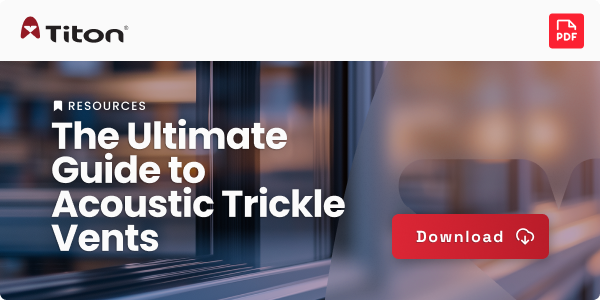Avoiding rework: The role of door and window hardware in PAS 24 compliance
Just one weak component can derail your PAS 24 test - costing you time, money and reputation. In the push to bring new windows and doorsets to market, fabricators can assume that meeting a checklist of individual component specs will be enough. But the reality of PAS 24 testing is much more complex.
What is PAS 24?
PAS 24:2022 (Product Assessment Specification) is a security standard published by the British Standards Institution. It sets enhanced security performance requirements for complete window and door assemblies. PAS 24 is a gateway to complying with Approved Document Q, the building regulation that applies to all new dwellings in the United Kingdom. For this reason, achieving PAS 24 compliance is often non-negotiable for fabricators.
What does PAS 24 really test?
Forget testing individual parts in isolation. PAS 24 demands that your entire door or window assembly proves its mettle under rigorous tests. This holistic approach means every component works in harmony to prevent forced entry and opportunistic attacks. The standard’s security tests simulate real-world break-in attempts, ensuring comparable risk across products:
- Manual test: Your unit will face simulated break-in attempts from screwdrivers, crowbars, chisels, and other common tools. It’s a true test of resilience against an opportunist burglar.
- Mechanical load testing: Forces are systematically applied to push your unit to its limits, assessing its structural integrity under extreme pressure.
- Impact testing: Blunt force is applied to measure resistance, mimicking kicks or shoulder barging to ensure the assembly doesn’t yield easily.
- Manipulation testing: Locks, hinges, and handles are critically assessed for their vulnerability to bypass attempts, confirming they can’t be easily outsmarted.
Components must work together to pass the PAS 24 security test.
How to pass PAS 24: Components and their role in enhanced security
Components are foundational to an assembly’s security performance. Each must be tested as part of the complete system - if one part fails, the whole assembly fails:
- Locks: Multi-point locking mechanisms are the gold standard, engineered to withstand both brute force and clever manipulation. These certified products must exceed PAS 24’s stringent security requirements and ideally carry Secured by Design approval from a recognised certification body.
- Cylinders: These small but mighty components are rigorously tested for resistance against snapping, drilling, and picking. Opting for cylinders that meet TS 007 3-star or Sold Secure Diamond Standard dramatically increases your chances of achieving PAS 24 compliance.
- Handles: Far from mere aesthetics, handles must be robust enough to resist lever attacks and avoid becoming a unit’s Achilles’ heel. Many advanced designs now incorporate built-in cylinder guards or external protection to meet the minimum requirement.
- Hinges: Often overlooked, hinges undergo rigorous testing - especially on outward-opening doors where hinge removal might be attempted. Fabricators frequently find hinge bolts or security pins are non-negotiable requirements here.
Navigating the minefield: why good products still fail PAS 24
The path to PAS 24 certification is riddled with potential pitfalls. Surprisingly, many failures aren’t due to inherently weak products, but rather systemic integration errors:
- Component incompatibility: Mixing hardware components that haven’t been tested together, even if individually compliant, can invalidate the entire system’s test results.
- Installation inaccuracies: Even minor misalignments, incorrect spacing, or unseen gaps—like inconsistent screw fixing—during fabrication or installation can create critical weaknesses that will emerge under impact or load tests.
- Inconsistent fabrication processes: Deviations in reinforcement placement or material dimensions during production can introduce unpredictable weak points.
- Substandard fixings: Using incorrect screw types, lengths, or materials—especially in crucial areas like lock keeps—can lead to immediate test failure.
Your blueprint for success: ensuring PAS 24 compliance every time
Achieving and maintaining PAS 24 certification is an ongoing commitment to quality. Here’s how forward-thinking fabricators can build a reliable, repeatable route to market:
- Embrace complete, tested hardware packages: Say goodbye to piecemeal sourcing. Prioritise suppliers who offer pre-configured, PAS 24-tested hardware suites. This guarantees components function seamlessly as an integrated security system.
Look for a partner that maintains a library of hardware combinations that have been successfully tested, reducing the guesswork and improving first-time pass rates for customers undergoing assessment. - Adhere strictly to fabrication manuals: Consistency is paramount. Once a product gains PAS 24 accreditation, third-party auditors conduct unannounced factory audits to make sure every unit coming off the line matches the one the lab tested. Even a small change to the fabrication manual – swapping a hinge type, altering sealant details or changing screw torque – is technically a “different product” and can invalidate your certification on the spot.
-
Engage in product testing early: If you’re innovating with a modified system or launching an entirely new range, bring in testing houses and your hardware partner at the earliest stages. Proactive consultation and access to existing test data dramatically reduces costly trial-and-error.
- Invest in continuous training: Empower your production and installation teams. Ensure they deeply understand the critical importance of compliant processes. Hardware partners can offer invaluable support through informative guides, detailed technical documentation, hands-on on-site training, and warranty-backed product packages to safeguard your production quality.
- Look for hardware partners with robust testing facilities, such as Titon’s Area 24, where hardware combinations are validated for durability, safety, and corrosion resistance — all of which support downstream compliance goals.
Ready to enhance your security offering? If you’re planning a new system launch or reviewing your PAS 24 compliance strategy, speak to Titon’s technical team for tailored advice and hardware packages designed to pass the first time.
Titon manufactures and supplies ventilation and window products – ranging from its signature Trimvent background ventilator to window handles, locking systems and hinge systems to powered ventilation products including whole house systems and extract fans. As a manufacturer, Titon also invests heavily in research and development, which enables the company to use the latest technology to keep its products both innovative and cost effective.


